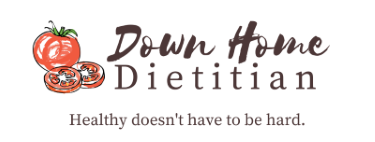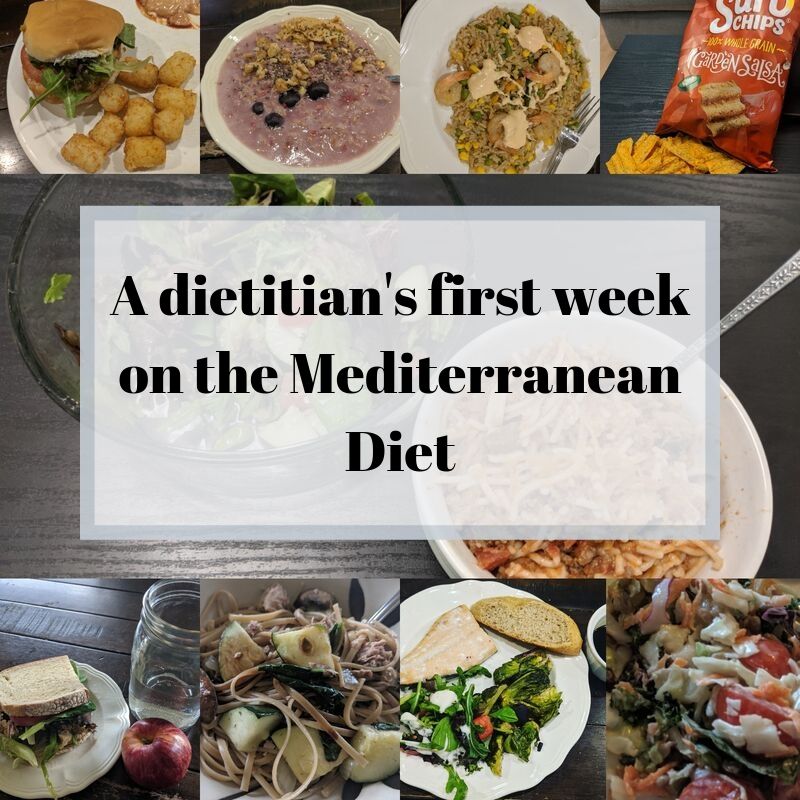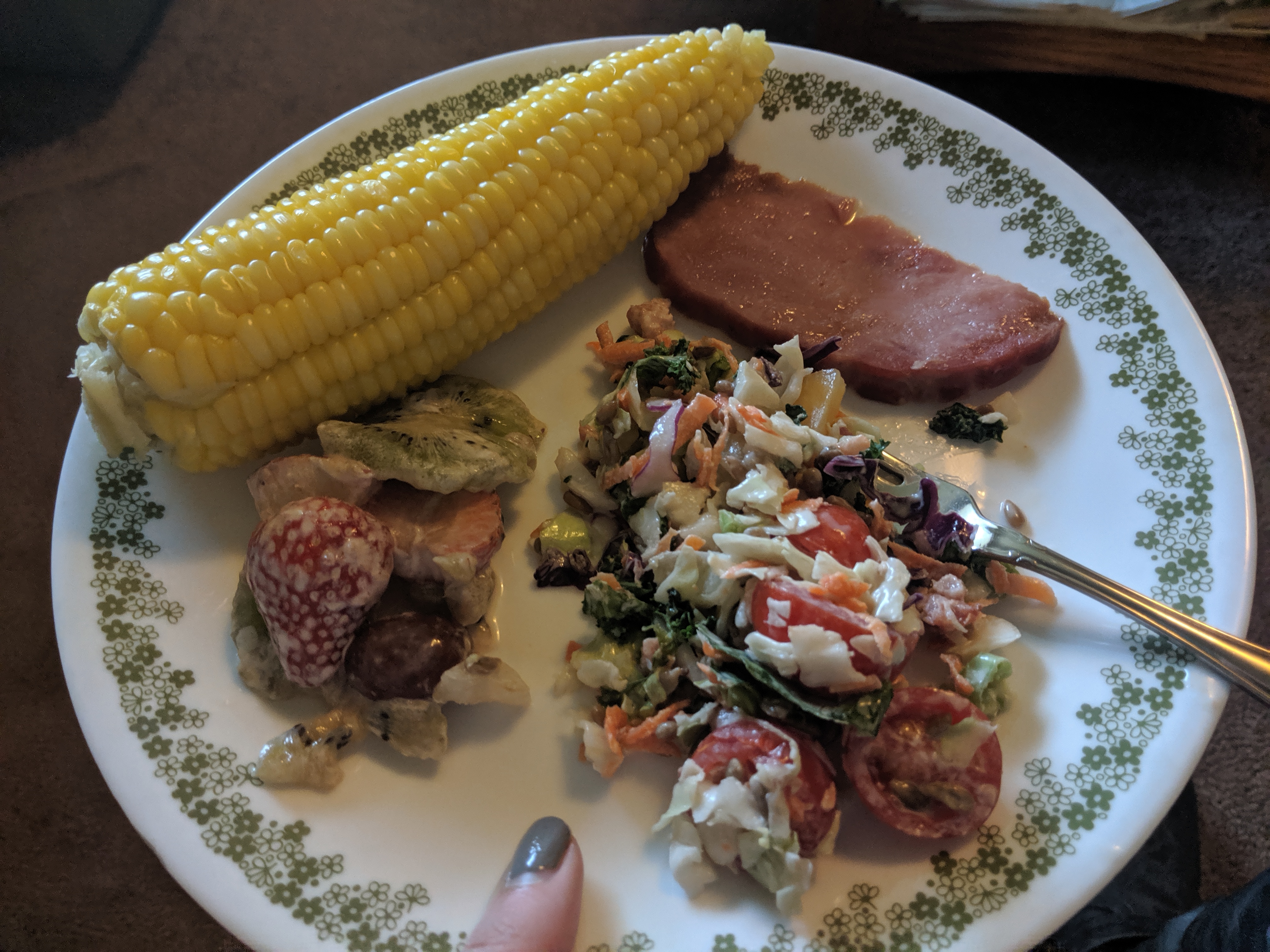Today marks the end of my first week on the Mediterranean Diet. My first impressions are that the Mediterranean Diet is heavy in fish and beans, nuts, seeds, grains, fruits, vegetables, and olive oil. Those things are all basically free-for-alls.* The diet includes a decent allotment of dairy products, and then some limited amounts of other animal-based proteins like chicken, beef, and pork.
Following the Mediterranean Diet was not a major struggle, but not entirely a walk in the park either. Read on to find out about my first week!
What went well
The biggest win of the week was the fact that I stayed within my grocery budget – I was very concerned about how expensive all that fish was going to be! It was so pleasantly surprising that groceries were comparable cost to my normal budget of $100 per week. Likely that was because the expensive seafood and the cheap beans in this diet balanced each other out.
I really enjoy fish and plant-based proteins so it wasn’t hard to eat those. I swapped my typical canned chicken for canned salmon to use on sandwiches and salad. I also learned a thing – canned salmon (at least the brand I bought) contains bones and skin! Who knew? Probably you – but not me (until last week). For breakfast proteins, I used Morningstar brand veggie sausage patties to avoid processed meat in the mornings. All that worked really well!
Challenges
The major challenge I faced this week was trying to navigate conflicting and/or vague recommendations from different sources. For example, the American Heart Association (AHA) and American Journal of Clinical Nutrition (AJCN) recommend low to moderate intake of fish, while the Mediterranean diet pyramid by the Fundación Dieta Mediterránea (FDM) recommends ≥2 servings of fish and seafood per week. The detailed guidelines from the FDM provided more specific guidance (which my type A brain appreciates), so I chose to follow those.
The AHA and AJCN also provide more generalized, less specific guidelines (e.g. low to moderate intake of fish and poultry). The Fundación Dieta Mediterránea gives very detailed recommendations in their Mediterranean Diet pyramid (e.g. <2 servings red meat per week). These types of differing messages are frequent sources for confusion for my clients. When you’re dealing with more generalized recommendations, you wonder “what does “low to moderate” mean, exactly?” When you have specific detailed guidelines, it can be difficult to count and keep track of them all. I struggled with this a bit, particularly since some of the recommendations are daily and others are weekly.
The detailed guidelines are a bit more restrictive than my typical diet in some areas. The biggest struggles were sweets and processed meat, believe it or not. Since there was no definition for these categories, I found myself wondering “what qualifies as a “sweet”? Obviously cookies, candy, etc. but what about beverages with added sugar, fruit juice, a few chocolate chips, a waffle with syrup?” I ended up deciding that I would only count dessert-like items in this category.
I had the same struggle with the “processed meat” category. Technically, all meat from the store is processed to a point…it’s been butchered and cut, sometimes seasoned, pressed or shaped, frozen, canned, etc. I assumed that any meat that has been ground and pressed with additives would count as processed meat – hot dogs, lunch meat, sausage, ham, etc. I did not include canned plain meats (chicken, salmon, tuna) as processed.
These two categories (sweets and processed meat) also proved most difficult for me to limit within the recommendations. Both of these things surprised me! I don’t generally consider myself a sweets person (I prefer salty all the way!), but limiting these to twice weekly was a challenge. The very first night I went to my grandma’s house for dinner and we ate ham (my processed meat for the week!) and dessert (one of my two sweets allotments for the week).
It was all totally worth it – it was made by my grandma, after all – but it was an early lesson in how quickly those allotments can go!
How I did
Following the Mediterranean Diet recommendations was a little tougher than I anticipated, partly because of the challenges mentioned above, but not extremely difficult.
The 2-4 egg per week, 2 servings dairy per day, and 2-3 servings fruit per day allotments pretty much reflect my typical intakes, so that wasn’t tough at all. I do pretty well with veggies in general, but I couldn’t quite average two servings per main meal.
| Mediterranean Diet Goal* | Week #1 | |
| # of days nutrition recommendations met | 7 | 5 |
| Grains (daily average) | 3-6 servings | 4 |
| Potatoes (weekly) | ≤3 servings | 3 servings |
| Legumes (weekly) | >2 servings | 3 servings |
| Dairy (daily average) | 2 servings | 2 servings |
| Fruits (daily average) | 2-6 servings | 2.5 servings |
| Vegetables (daily average) | 4-6 servings | 3 servings |
| Olives/nuts/seeds (daily average) | 1 serving | 1 serving |
| Eggs (weekly) | 2-4 servings | 3 servings |
| Seafood (weekly) | >2 servings | 7 servings |
| Red meat (weekly) | <2 servings | 1 serving |
| White meat (weekly) | 2 servings | 2 servings |
| Processed meat (weekly) | ≤1 serving | 1 serving |
| Sweets (weekly) | ≤2 servings | 2 servings |
| Weight change | -1 lb | |
| Grocery Budget Change | $0 |
Possibly TMI reality
Digestive disturbances. Normal with any diet change, but ever obnoxious. Let’s leave it at that.
All in all, my last week has gone pretty well. I’m looking to get a bit more organized and try to balance the seafood with more plant-based proteins this week since the AHA and ACJN recommendations are to moderate those also. Stay tuned!
*Based on the FDM recommendations I chose to follow. AHA and ACJN limit fish to “low to moderate” amounts.
You Might Also Like
How does one make one’s heart healthy?





